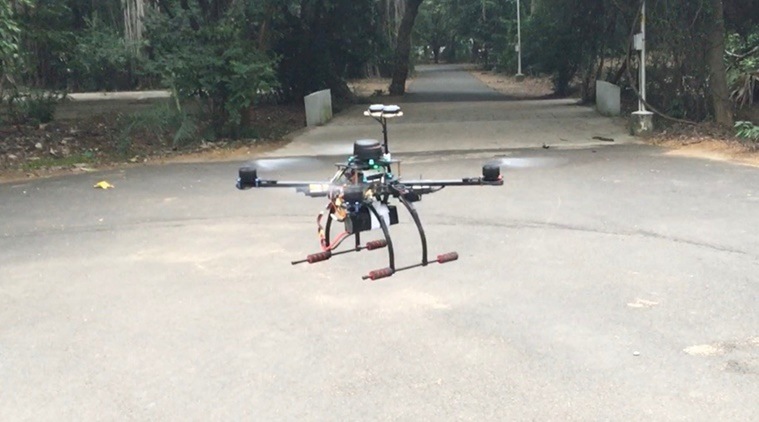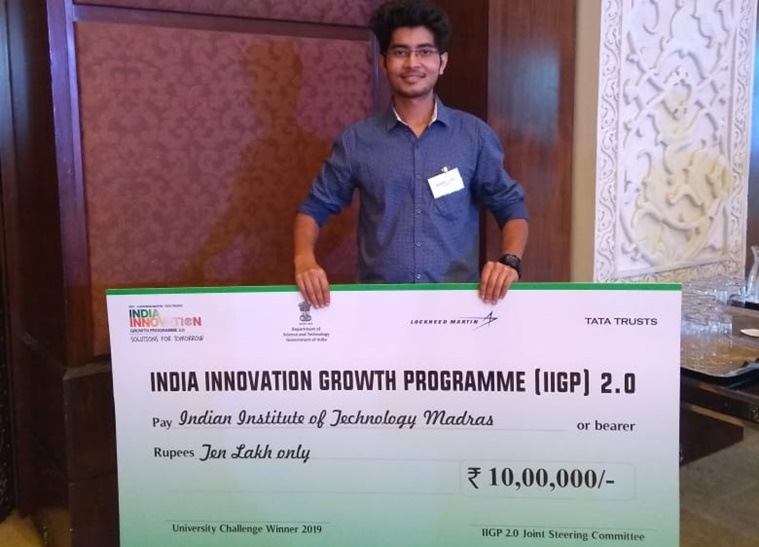
Students from the Indian Institute of Technology (IIT), Madras developed a device ‘Agricopter’ which will eliminate the need of manual spraying of pesticides in the fields by the farmers. The hexacopter drone can spray pesticides 10 times faster and claims to provide 100 per cent accuracy with its multispectral imaging camera to make smart maps of farmland based on the health of the crops.
The journey of making ‘Agricopter’ started back in 2018, when one of the three developers, Rishabh Verma who hails from a farmer’s family narrated issues faced by farmers to his friends. Quoting data from Chandra Bhushan, deputy director-general, Center for Science and Environment (CSE), Verma said, each year, around 10,000 farmers die in India from the harmful effects of chemicals in the pesticides.
READ | IIT-Hyderabad startup BeAble’s innovation to heal stroke patients
“The manual spraying is a very tedious process. Every year 10,000 farmers die in India and health of many is adversely affected mainly due to two of the pesticides — monocrotophos and oxydemetonmethyl which were mentioned as class 1 pesticides by the World Health Organisation (WHO),” said the 22-year-old.

Verma who hails from an agricultural family in Rajasthan said, “The economy of India is mainly dependent on farming, but we did not upgrade the techniques involved in the same. There is an urgent need to change farming techniques, and the device – Agricopter will provide a new avenue of farming.”
After initial research with farmers, farm-based organisations, pesticide sellers and associations, the journey of making a drone started. “When we discussed the issue of pesticides with farmers, and the pesticide associations, we found that many people do not have the knowledge about proper applications of the pesticides. Our main aim is to aware people first. Currently, we will run trial runs at the device. Once it is finalised we will provide it on service-basis at Rs 350 per hectare,” he said.
Other agriculture-related drones available in the market start from Rs 15 lakh, but the Agricopter will cost around Rs 5.1 lakh. “Since we developed each part and software used in the drone ourselves, the cost, therefore, could be reduced. Generally, features including multispectral imaging camera, automatic refilling system up to 15 litres etc are outsourced which increases the price,” said Verma.
IN VIDEO | 22-year-old boy (first in his village) to clear NEET
After several rounds of testing, the drone is expected to be operational from September. The developers will initially provide it in the farmlands of Madras, followed by Pune and Maharashtra. “A farmer can operate four to five drones simultaneously with a single remote control,” he said.
The joint effort of these IITians which includes Kavin Kailash and Aakash Anand recently received Rs 10 lakh after their product won the Indian Innovation Growth Programme (IIGP 2.0) University Challenge held at IIT Bombay. “We have applied for a patent, and will work hard for the accuracy of the device,” Risabh said.